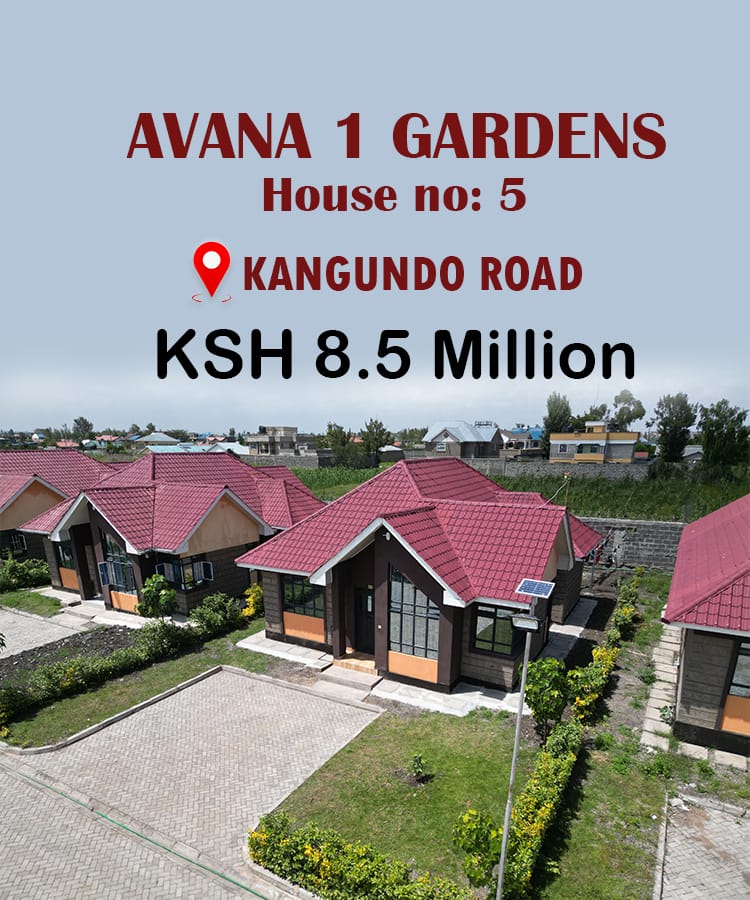Buying property in Nairobi isn’t just about the sale price. Once you own land or a home, property taxes in Kenya kick in — and these can significantly affect your long-term cost of ownership. Many buyers focus on stamp duty during purchase, but forget that annual land rates, rent charges, and capital gains tax also play a role.
Here’s a breakdown of what every buyer and investor should know.
Types of Land Taxes in Kenya
Kenya has several property-related taxes, each applying at different stages of ownership:
| Tax Type | When It Applies | Who Pays | Rate / Structure |
|---|---|---|---|
| Stamp Duty | At property transfer | Buyer (unless seller offers concession) | 4% (urban), 2% (rural) |
| Annual Land Rates (Nairobi County) | Annually on freehold and leasehold land | Landowner | Varies by location, plot size, valuation |
| Land Rent | For leasehold properties (from the government) | Landowner | Fixed by Lands Office, periodic reviews |
| Capital Gains Tax (CGT) | On sale of property | Seller | 15% of net gain (since 2023 update) |
| Rental Income Tax | Monthly rental income | Landlord | 7.5% of gross rental income (effective 2023) |
Read Also: Stamp Duty in Nairobi Real Estate: How Much It Costs and Who Really Pays
Property Taxes in Nairobi: Annual Land Rates and What They Mean for Buyers

Nairobi County charges annual land rates on both freehold and leasehold properties. These are calculated based on the property’s unimproved site value (value of land without buildings).
For example:
- A KES 15M plot in Lavington may attract KES 30,000–50,000 annually.
- A townhouse in Ruaka could be lower, depending on valuation and county zoning.
👉 Why this matters for buyers:
- Recurring Cost: Land rates are payable every year — failure to pay can lead to penalties or restrictions on transferring property.
- Budgeting: Smart buyers include land rates in their long-term affordability calculations, not just mortgage repayments.
- Verification: Always confirm with Nairobi County that land rates are fully paid before purchasing a property.
Read Also: Mortgage Rate Buydowns in Kenya: Do They Really Save Money?
Capital Gains Tax in Kenya: Who Pays and Who Is Exempt
When you sell property, you’re liable for capital gains tax in Kenya at 15% of the net gain (sale price minus purchase and improvement costs).
Who is Exempt from Paying Capital Gains Tax in Kenya?
- Transfers between spouses or immediate family due to inheritance or divorce settlements.
- Property sold for less than KES 3M (exemption threshold).
- Shares listed on the Nairobi Securities Exchange.
- Certain government-approved corporate restructurings.
For most ordinary homeowners in Nairobi, selling property above KES 3M will trigger CGT obligations.
Monthly Rental Income Tax in Kenya
If you’re buying property in Nairobi to rent out, remember that rental income is taxable.
- Rate: 7.5% of gross monthly rental income (collected at source, no expense deductions).
- Applies To: Landlords earning between KES 288,000 – 15M annually from rentals.
- Example: If your apartment earns KES 100,000 per month in rent, your tax is KES 7,500 monthly, regardless of expenses.
This tax directly impacts net yield for investors, making it a crucial calculation before buying.
Legal Fees for Land Purchase in Kenya
Beyond taxes, buyers must also budget for legal fees for land purchase in Kenya. The Advocates Remuneration Order sets legal fees, usually between 1.5% – 2% of the property value.
Example:
- On a KES 12M townhouse, legal fees could be KES 180,000 – 240,000, plus VAT.
This, combined with stamp duty, makes closing costs significant. Some sellers offset these through concessions.
Read Also: Seller Concessions in Nairobi: Closing Credits, Rate Buydowns & How They Work
Taxes in Real Estate Sale: Full Picture
A Nairobi property transaction involves multiple taxes:
- Buyer pays stamp duty and legal fees.
- Seller pays capital gains tax.
- Owners pay annual land rates (and land rent for leaseholds).
- Landlords pay monthly rental income tax.
These taxes together form the true cost of owning and selling property in Kenya.
Property taxes in Nairobi real estate are not optional extras — they shape both the cost of buying and the return on selling.
- Annual land rates are recurring and must be budgeted for.
- Stamp duty hits hard at purchase.
- Capital gains tax affects sellers, though some exemptions apply.
- Rental income tax reduces yields for landlords.
👉 Smart buyers look beyond price tags. They calculate all taxes, legal fees, and long-term obligations before committing to property ownership in Nairobi.






